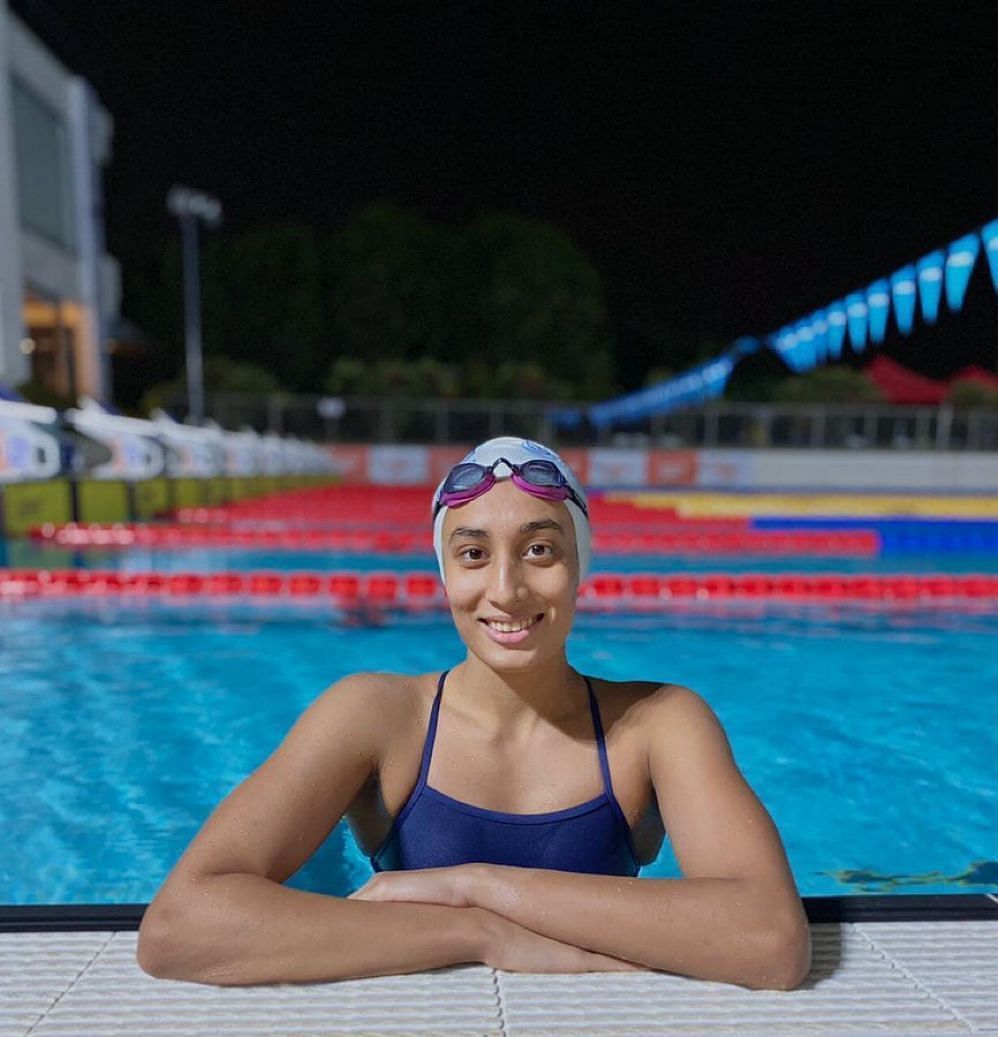
"The involvement of the corporates in the swimming fraternity is also going to be a game changer" - Maana Patel on the rise of swimming in the country
India has witnessed a progressive rise in not only the number of professionals in the swimming field but also their performance in recent times, yet a noticeable gap persists between Indian swimmers and their international counterparts.
Maana Patel, one of India’s leading athletes and the country's representative in swimming at the Tokyo Olympics, sheds light on this disparity and its underlying reasons. In an exclusive interview with Sportskeeda, Patel emphasizes the potential that Indian swimming possesses and how certain changes in the ecosystem could see India reach new heights in the coming years.
“I believe that the involvement of the corporates in the swimming fraternity is going to be a game changer. It could be a game changer because we need more and more clubs, we need more and more coaches, and that also allows the swimmers in the country to move around and see what works best for them because up until now we've only had very limited clubs in India where you can go for competitive swimming and to improve yourself,” she said.
She added that corporations like JSW and Glenmark are taking steps to open new centers across the country, giving upcoming swimmers an opportunity to train in better facilities and see what training suits them the most.
“I think with the involvement of corporates like JSW and Glenmark and their many centers opening across the country, it gives swimmers a brilliant opportunity to go and try out what works for them,” she added.
Maana Patel envisions a positive ripple effect with the increase in clubs across India. She believes the rise in the number of swimmers will lead to healthy competition and create a competitive environment, which is crucial for pushing athletes to be the best. It will also create a robust ecosystem within the swimming fraternity—a development long overdue in India.
“The more clubs in India, the more swimmers will come up and the more competitive it will get, and I believe healthy competition is a must in order to push each other and in order to be the best and bring out the best in each other, so I guess this is also one good thing that I see happening, and this can also prove to be a very big ecosystem in the swimming fraternity in India, which is very much required,” she said.
"We need to really have a technical director" - Maana Patel on what is lacking in Indian swimming
Transitioning to the need for a technical director, Maana Patel stresses the importance of a figure who can assess Indian swimming comprehensively and bridge the gap between national and international standards.
"Now, I feel that we need a technical director who can understand Indian swimming and its shortcomings. This person would serve as a bridge between Indian and international swimming standards, providing guidance on how we can make improvements collectively. I feel that we need to have a good technical director who can really assess what's going on and understand Indian swimming and what is lacking; he or she can be the bridge between Indian swimming and the international swimming standard,” she said.
She emphasized the importance of a leadership figure who can spearhead the swimming program in India.
“Because every club and everybody has their own program and we're not really integrated, and that is okay, I understand because swimming is an individual sport, but overall, we really need to have a technical director who can also guide us through how we can bridge the gap. I'm sure with his or her input, we're going to be where we can make some improvements,” she added.
Acknowledging the positive strides made by the swimming federation, Maana Patel expresses confidence in the hiring of human resources dedicated to working closely with swimming teams and individual athletes.
“I also believe that the swimming federation is doing a fantastic job in hiring human resources who associate themselves with the swimming teams and individual swimmers and give a lot of input and guidance, so I think I'm hoping to see some really good results in the coming years,” she said.
Furthermore, Maana commends initiatives such as inviting Dr. G (Dr. Genadijus Sokolovas) to share insights on stroke correction and technical aspects, along with incorporating strength and conditioning expertise from the UK.
“To have Dr. G (Dr. Genadijus Sokolovas) come in and give us his thoughts on the stroke correction and other technicalities of sport to bring in the strength and conditioning from the UK and have a bit of perspective,” she said.
She concluded by saying that she was excited to see more changes to the program the future.
“So, things like that (inviting individuals like Dr. G) are required, and I'm really happy that the swimming federation is having tie-ups with people like that, and I am really excited to see what happens in the next couple of years,” she said.